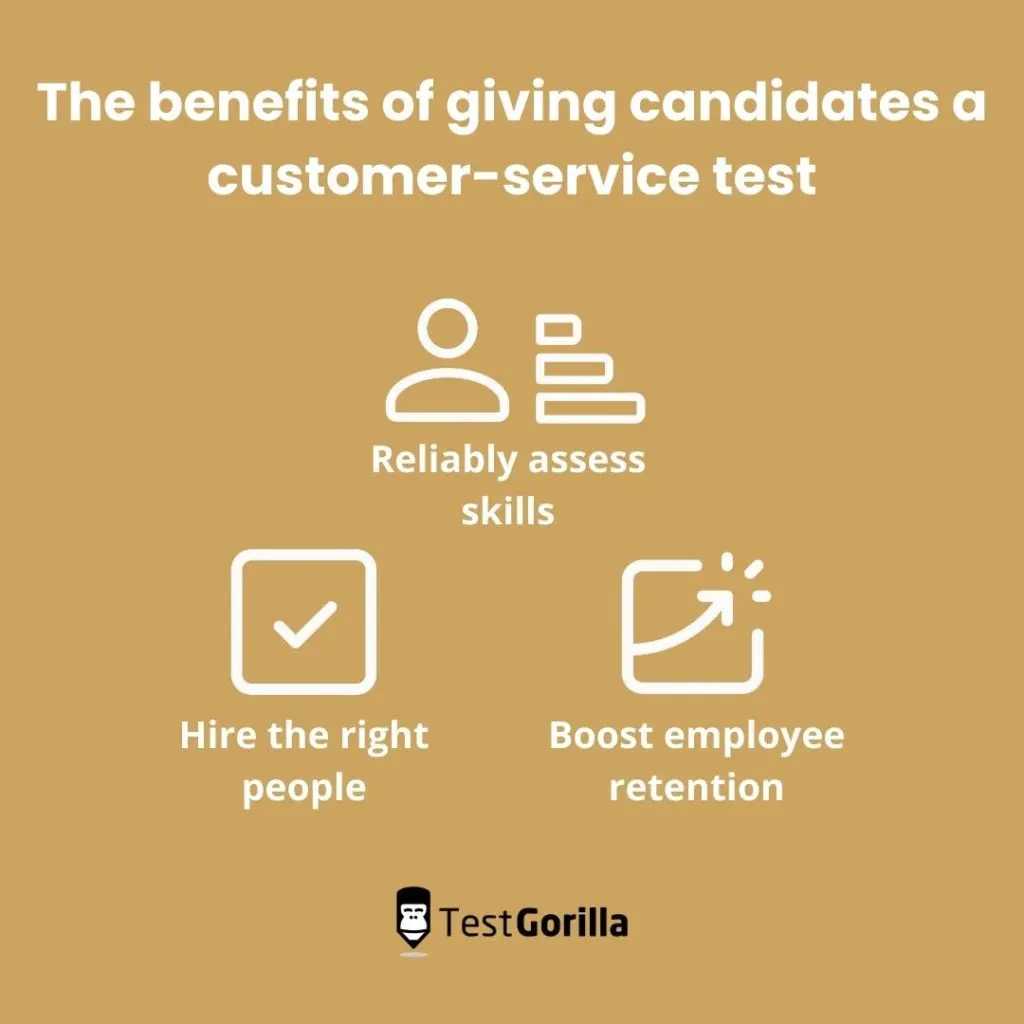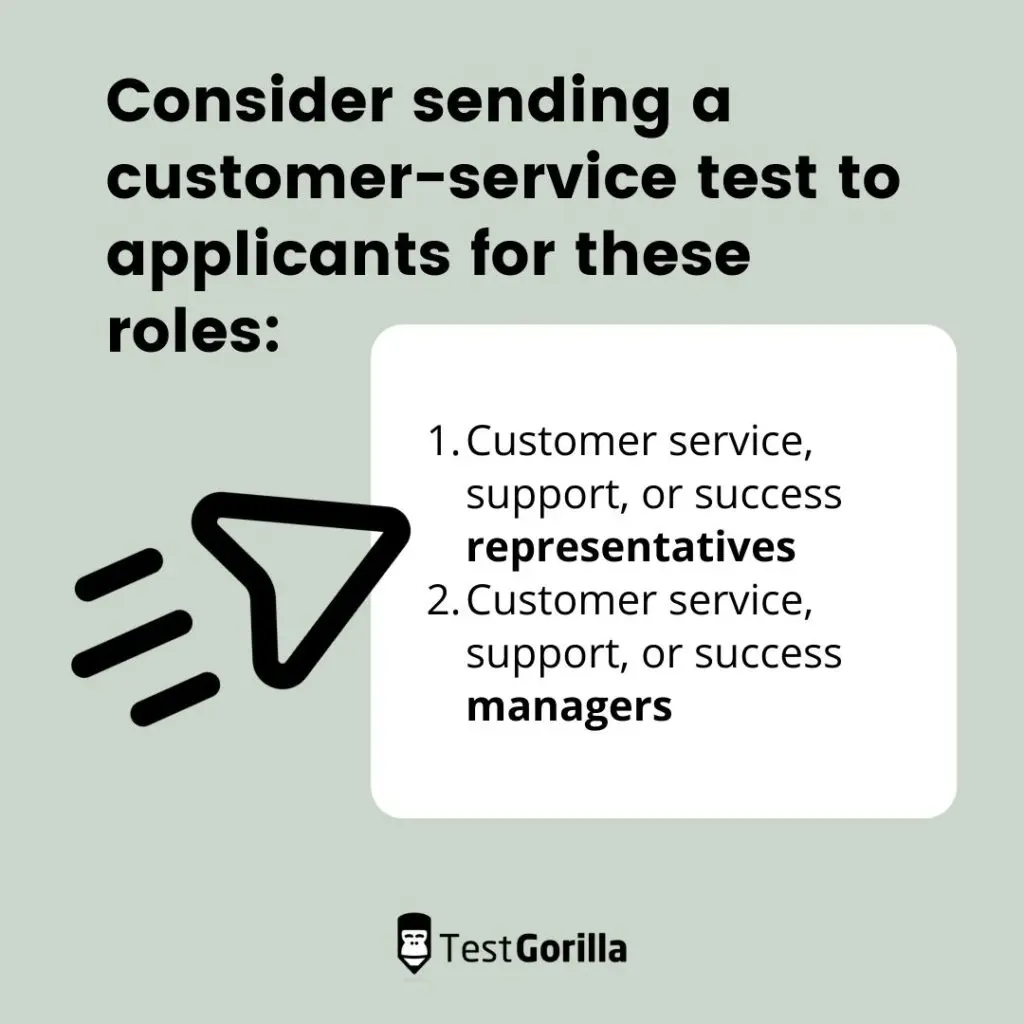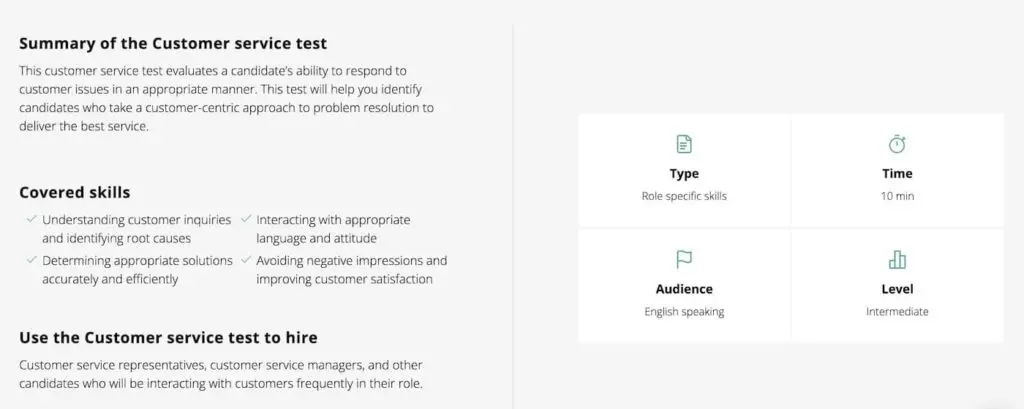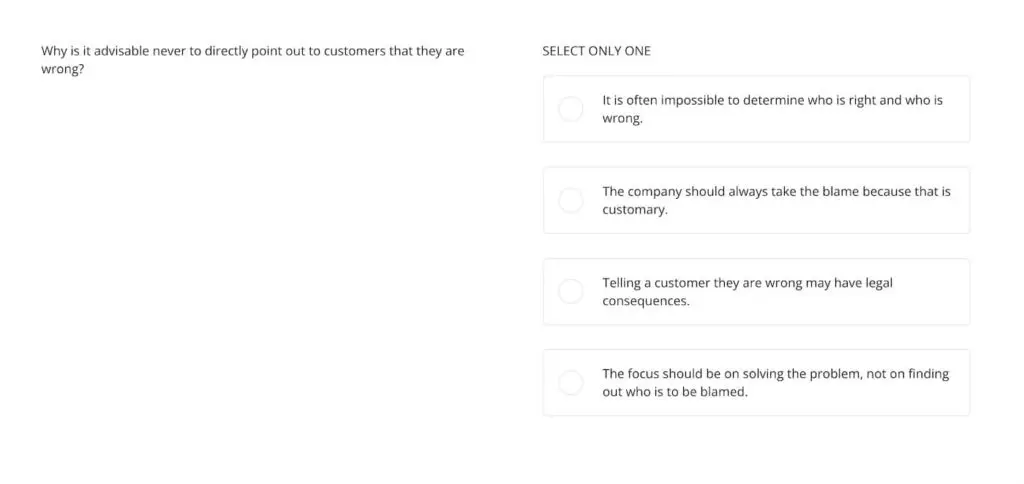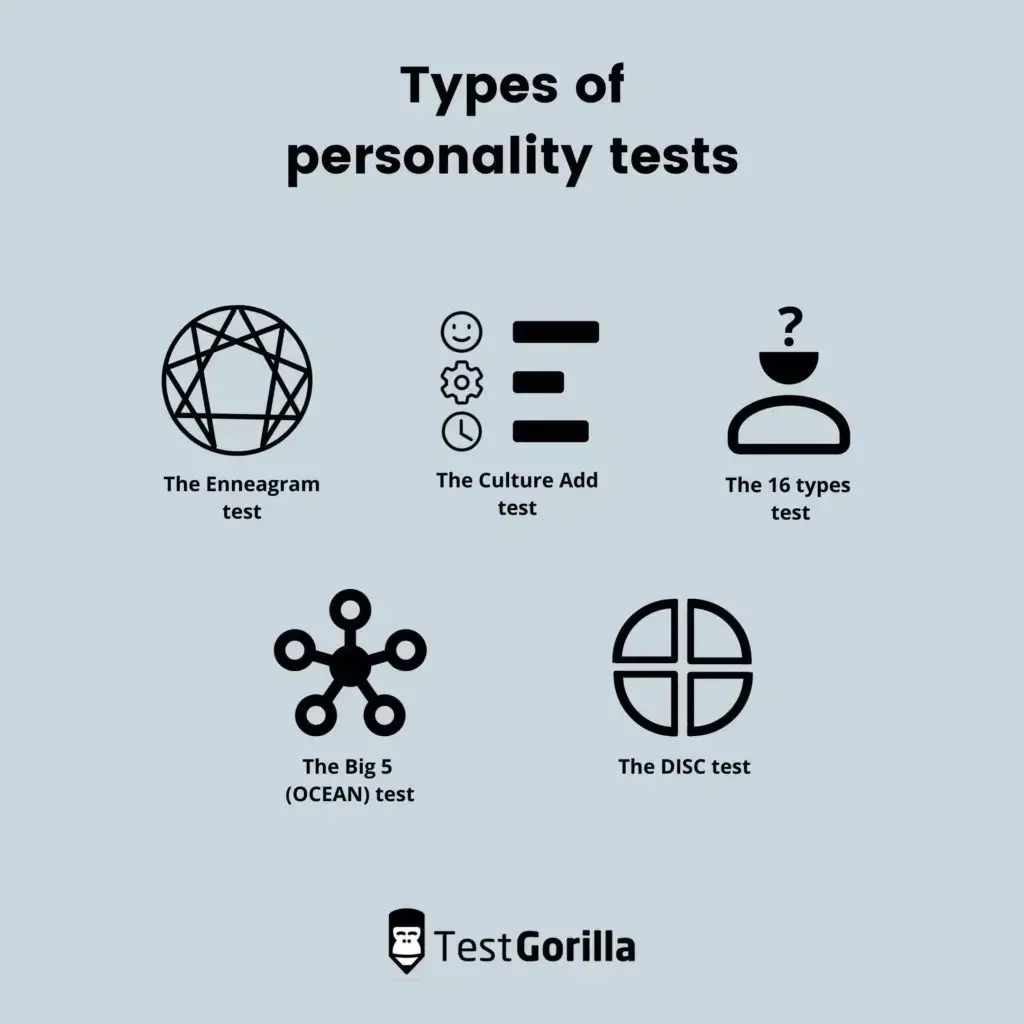Table of contents
In today’s market, businesses need to do more than simply provide high-quality products and services for their consumers if they want to be competitive. Customer experience is a crucial factor when you’re considering what to invest in next to keep your business growing. When it’s done well, loyalty increases, and customer-retention figures climb.
In other words, brands need to provide a positive experience that customers will remember, rave about, and want to come back to. Companies that aren’t doing this are at a serious competitive disadvantage. In case you hadn’t heard already, having customers advocate for you is the ultimate marketing strategy. And better still, it’s totally free.
If you’re looking to jump on the opportunities that investing in customer experience can bring, then you’ve landed on the right page. Read this blog post to find out more about the significant role customer service has to play. As a bonus, we’ll guide you through using pre-employment skills assessments to build a strong customer-service team for your business. With pre-employment testing, it’s easier than you might think.
In this blog post:
High-quality customer service: Why bother?
What do customers want?
This is the fundamental question that all businesses offering a service or product to customers should be asking themselves. Constantly.
The answer varies from business to business, but one thing is true for every brand. When it comes to their experiences as consumers, customers want top customer service.
Of course, there’s a long list of things that will affect the kind of experience a customer has with your brand. If somebody has a bad experience, it could be that they don’t like your product, that it wasn’t what they expected, or that it wasn’t delivered on time. It could even just be that they’re having a bad day.
But there’s one thing that trumps all others when it comes to tainting customers’ perceptions of a brand. And that reason, maybe predictably, is bad customer service.
93% of customers are likely to make repeat purchases with companies that offer excellent customer service
Bad customer service feels personal, and, as a result, people take it personally. An uncomfortable interaction with a rude or dismissive salesperson is enough to ruin someone’s day and there’s nothing quite so frustrating as having your emails about a refund ignored for weeks on end.
When it comes to customer service, companies simply cannot afford to make mistakes
And research demonstrates as much. In 2020, the customer experience management market was valued at $7.6 bn. This was a 16.9% increase from its value of $6.9 bn in 2019.
Customers want high-quality customer service, and they’ll pay for it: 86% of customers surveyed in 2020 were willing to pay up to 25% more money for a better customer service experience.
Businesses should also remember that the importance of providing good customer service and support is not always so quantifiable. People talk, and with every bad experience comes an invisible network of conversations discouraging customers from using your products or services, and driving them to competitors instead.
Despite this, the rise of social media has given customers the power to make these conversations visible if they want to. Twitter is the number one platform for brand interaction, and, unfortunately, customers are more likely to tweet about a bad experience than one they were satisfied with. So, although social media brings exciting opportunities for brand advocacy from customers, the stakes are higher than ever for customer experience.
The benefits of giving candidates a customer-service test
Reliably assess the skills of your applicants
One concrete way of investing in your brand’s customer experience is to employ people who have the skills to provide excellent customer service. By recruiting the best candidates, you can guarantee that your customers will be interacting with a team whose expertise covers the following top seven customer-service skills:
Patience
Communication
Respect
Empathy
Positivity
Problem-solving
Decision-making
Together, these skills make up the ultimate customer-service skillset. Employees with these skills and an in-depth knowledge of your brand’s products or services, which will come once you onboard them effectively, are best equipped to foster positive customer interactions. So long as customers enjoy your product, these will make them happy, keep them coming back, and encourage them to advocate for your business.
CVs are not fit for assessing customer-service skills
If you are evaluating applicants based on CVs and cover letters alone, then your chances of hiring the best talent are significantly reduced. This is because, although CVs offer an overview of your candidates’ experience, they don’t offer any evidence that you can trust for the skills advertised.
To put it simply, the CV as we know it is outdated and inadequate as a recruitment method. There is no common standard and they leave hiring practices wide open to the risk of unconscious bias. Employers have no way of knowing when applicants are inflating their skills and experience on a resume, and studies show there is no strong link between experience and job success, anyway.
In contrast, pre-employment skills testing can help recruiters paint a far more useful picture of their candidates. Unlike CVs, skills assessments can:
Help eliminate unconscious bias
Predict job success
Reliably evaluate role specific skills
Assess soft skills and social/emotional intelligence
Give an idea of candidates’ personalities
These final two points are especially important for customer-service roles, where interpersonal interactions are central to the job.
Hire the right candidates for your company culture
The patience, positivity, and respect that you need your team to bring to every customer interaction will come far more naturally if you’re hiring people who are happy to work with you, feel positive about your products or services, and identify with and respect the wider mission or goals of your business.
Almost every candidate will come to an interview armed with a prepared response for questions such as: why do you want to work for us? Why does this job appeal to you? The only way to know for sure if they are a good culture fit, or culture add, for your business is to use an assessment.
Giving a Culture Add test when hiring for customer-service roles will help you employ people who align with the values of your company and will stay engaged at work. If your employees are happy to be selling your product to customers, it will shine through.
Boost employee retention
Candidates who align with your goals and vision are also likely to work with you for longer. According to a 2021 employee wellbeing study, only 46% of employees feel connected to their managers, job, and company.
The stronger this connection is among your workforce, the higher your company’s employee retention rates will be. When it comes to customer service, high retention can give your team an important edge. Employees who have been with you longer will know your products and services inside out and will have the experience and expertise to address customer inquiries as swiftly as possible.
Which roles require customer-service testing?
Although customer-service skills are important for customer-facing roles within any industry, for some jobs the stakes are higher than others. For the following roles, customer-service testing is a necessity if you want to avoid mishires that might negatively affect your brand’s customer experience.
Customer service, support, or success representatives
Any job that makes someone a key player in your customers’ journeys, from buying decisions to post-purchase support and potential future purchases, falls into this category. In hospitality, this will be your front-of-house team. For businesses that sell products online, this will be anyone who works in sales or customer support and interacts with customers by email and over the phone.
Customer service, support, or success managers
Beyond interacting with customers and providing them with support, employees working at this level will be responsible for determining how your company approaches and optimizes the customer experience. If you’re hiring somebody who will be responsible for shaping your customer-experience gameplan, customer-service testing is a must.
How the customer-service test works
The customer-service test is a role-specific assessment. The results will tell you how proficient candidates are when it comes to:
Understanding customer inquiries and identifying root causes
Interacting with the appropriate language and attitude
Determining appropriate solutions accurately and efficiently
Avoiding negative impressions and improving customer satisfaction
Candidates who do well on this test will be able to provide assistance in a personable, patient, and professional manner that follows your company’s protocols
What kinds of questions should candidates expect?
All of your candidates will be given the same selection of questions, chosen at random from a larger pool, to ensure an even playing field.
Most questions will present candidates with real-life scenarios typically encountered in customer service. They will be asked to choose the best way to respond to the scenario from a selection of answers. Below is an example of this kind of question:
Other questions are less specific and strive to give you an idea of candidates’ ethos and approach to customer service more generally, such as this one:
Questions like this will reveal which candidates understand the complexities and nuances of customer service. Applicants who do well will be capable of treating customers with empathy and respect while upholding your company values and the integrity of your brand.
Combine tests to build a complete pre-employment assessment
We recommend that you combine five tests to form an assessment and use this alongside custom questions and interviews. With this recruitment strategy, you’ll be able to hire the best without bias or stress in no time.
It’s important that you use a combination of tests to evaluate candidates rather than making hiring decisions based on one test result alone. Although excellent customer-service skills will be a priority when recruiting for the roles mentioned earlier in this blog post, there are other factors at play when it comes to hiring the best candidate.
Personality tests
You might want to give a personality test to learn more about who your applicants are as people before committing to a shortlist. If so, we have a range for you to choose from. These tests will tell you more about your candidates’ characteristics and behaviours:
16 Personalities test: uses four core binaries to give insight into a person’s source of energy, ways of processing information, decision-making processes, and lifestype preferences
Big 5 (OCEAN): follows the Five-Factor Model to evaluate five dimensions of personality: openness, conscientiousness, extraversion, agreeableness, and emotional stability
DISC: classifies how we express emotions into four behaviour types: dominance (D), influence (I), steadiness (S), and conscientiousness (C)
Enneagram: maps out different personalities on a nine-pointed diagram describing the core beliefs and worldviews that each operates from
As discussed above, our Culture-add test will assess a candidate’s value and behavioral alignment. Their answers are measured against a customized survey about your company that you fill out.
Software-specific tests
If your sales team relies on specific software to conduct business, you might want to employ somebody who knows how to use it. Just because a candidate has experience with something listed on their CV doesn’t mean they have the competency necessary to do the job you need them to do. If this is important for you, we have a few tests that can help.
Our HubSpot CRM test will assess candidates’ skills in HubSpot’s sales, marketing, and customer-service software
The Zendesk CS test identifies candidates who can efficiently solve problems using Zendesk support products
Motivation test
Motivation is important to assess if you want to understand how likely candidates will be to drive and succeed within their roles. This is useful if you are looking to boost employee retention.
Our innovative Motivation test measures how candidates’ expectations align with your job offer. The results are based on a customized survey that you and the candidate both fill out, and it’s a reliable indicator of job performance and success.
Other soft skills
A Communication test can be a good way to gauge how successful your candidates will be at communicating effectively with customers and colleagues
Our Problem-solving test is great to use if you’re hiring for customer service, success or support roles at a managerial or leadership level
Identify, interview, and hire the best
Once you have built and sent out your assessments, and your candidates have completed them, you’ll be presented with enough information to make a sound decision about who to shortlist and interview for your customer-service role.
If you’re not sure how to conduct customer-service interviews, don’t worry – we’ve got you covered. Here you can find 23 customer-service interview questions that will help you hire the right talent.
To start your journey with no-nonsense, data-driven hiring today, sign up with TestGorilla for free or choose a plan that works for you.
Related posts
Hire the best candidates with TestGorilla
Create pre-employment assessments in minutes to screen candidates, save time, and hire the best talent.
Latest posts
The best advice in pre-employment testing, in your inbox.
No spam. Unsubscribe at any time.

Hire the best. No bias. No stress.
Our screening tests identify the best candidates and make your hiring decisions faster, easier, and bias-free.
Free resources
This checklist covers key features you should look for when choosing a skills testing platform
This resource will help you develop an onboarding checklist for new hires.
How to assess your candidates' attention to detail.
Learn how to get human resources certified through HRCI or SHRM.
Learn how you can improve the level of talent at your company.
Learn how CapitalT reduced hiring bias with online skills assessments.
Learn how to make the resume process more efficient and more effective.
Improve your hiring strategy with these 7 critical recruitment metrics.
Learn how Sukhi decreased time spent reviewing resumes by 83%!
Hire more efficiently with these hacks that 99% of recruiters aren't using.
Make a business case for diversity and inclusion initiatives with this data.

